The Sickness is Medicine
What does it mean to express a Buddhist response to climate change? What does our wisdom tradition and our love for this life call us to do? How can we respond with wisdom, compassion and courage?
This is the first of the two online EcoSattva Training courses, the second course, Bridge to the Other Shore, can be done before or after this series.
Note that registration details include fees, online group directories and the live webinar date and time in Decmeber are still being finalized. Review series content and gather interested folks in your community and then check back here on or after October 3rd.
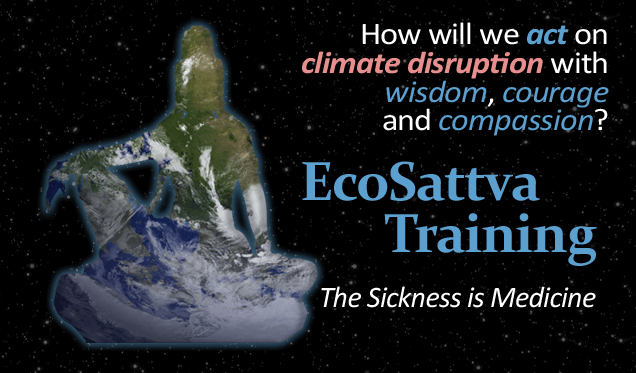
We invite you to experience a powerful collection of teachers, activists and other leaders in our annual EcoSattva Training series. Built on the foundation of last year’s inaugural online course, you’ll hear from luminaries like Joanna Macy, global Buddhist activists like Thanissara, revered translators of Dharma like Bhikkhu Boddhi, powerful new voices in Dharma like Reverend angel Kyodo williams, and many others. Most importantly, this year’s training offers another opportunity to come together in community to explore how the practices of wisdom and compassion can meet a challenge even as immense as global climate change.
I really appreciated feeling like a part of a Sangha on the topic of Climate Change. I didn’t realize how alone and isolated I felt on this issue until I really felt the support of all of you and the broader community. The feeling that we’re not in this alone and that we’re all doing this together touched me much more deeply than I would have imagined.
— 2015 Participant in EcoSattva Training
In the 2016 update, two new live sessions bookend five recorded sessions from last fall. These core sessions, which you can do at your own pace according to your schedule, also include science and policy segments, updated for 2016, from One Earth Sangha co-founder and head of the World Wildlife Fund’s climate program, Lou Leonard.
Whether this is the first you’ve heard of it, missed the course last year, or, like many we’ve heard from, want to go through it again, we encourage you to gather members of your sangha, circle of friends or let us help you find an online group to experience this powerful online course together. Whether done on your own or as a group, this course is designed to develop a larger social capacity to effectively engage on climate change and other ecological challenges, both thematically and locally, with courage, compassion and wisdom. We invite you to join us again this fall for this series of important sessions hosted by One Earth Sangha.
As both a longtime Buddhist and a social justice activist, I have taken the EcoSattva course twice and will participate again this fall. Learning through the eyes of various teachers the many ways that Buddhism expands one’s ability to look at what is befalling Earth and, through the enormous grief that brings, to love more beings more fully provides me with immeasurable resiliency.
— 2015 Participant in EcoSattva Training
Also, before commenting or emailing with questions, please check out our FAQ. Your answer might be waiting for you there!
Introduction
“A monk once asked the Chinese Master Yun Men, “What is the work of the Buddha’s whole life?” Yun Men replied, “An appropriate response.” In the face of catastrophic climate change, we as a Buddhist/mindfulness community have the opportunity to creatively define for ourselves appropriate response: response that is wise, compassionate, transformative, resolute and equanimous. To realize this potential, the community needs courageous, engaged practitioners at all levels. This is the path of the EcoSattva.
The term “EcoSattva” is a blend of “eco” or “ecology” with “Boddhisattva,” an enlightened being wholly dedicated to the freedom and well-being of others. We hope to support aspiring EcoSattvas in a diverse and powerful body of response, tailored to their aspirations and abilities and grounded in the demands of their local situations. Specifically, the course will endeavor to
- Root action on climate in Dharma practice
- Develop Sangha by connecting EcoSattvas with each other and outside partners
- Inspire and inform “appropriate response”
Below you will find the elements of the course, the list of session leaders, the course schedule and how to register.
I see that, even though I am a long-term committed activist, there are many fears that I had not been wiling to look at before. Now I have the courage, doing this in a group, with this course really helped. I’m going to talk to the groups I protest with and get them interested in these topics.
— 2015 Participant in EcoSattva Training
We are offering here a rare opportunity to engage with powerful teachers and a global sangha to inspire, guide and resource our efforts in service of life. We hope you will join us as we believe this course can contribute to the growing forms of Buddhist/mindful response answering the call of the Earth and all her beings.
The Dharma is a terrific lens through which to view ecoactivism. This has helped me think about ways to help others who are either overwhelmed or think no action can be sufficiently effective and have given up.
— 2015 Participant in EcoSattva Training
[expand title=”Elements of the Course” tag=”h3″ id=”Elements of the Course”]
The heart of the course is six sessions recorded sessions that you can move through at your own pace according to the schedule that works for you and, ideally, a local group. The recordings average about 90 min playing time but you may wish to schedule two hours or more to allow for practice time, break-out groups based on the inquiries offered and/or discussion. Each session includes preparatory “homework,” questions for contemplation that you can use in the session in small groups or in your individual meditation practice. Follow-up resources are also included to help you go deeper on themes from the session.
Guided by a wealth of diverse voices, the course begins with resourcing ourselves for the journey, explores the “hindrances” to the EcoSattva path, embraces into the immense uncertainty of this moment, and finally inspire action on behalf of all beings as a form of deep practice. The two-hour sessions will include wisdom from Dharma leaders, interactive inquiries and practices with members of the global online sangha, a question and answer period and concluding with blessings for our efforts. (Note that all of the online sessions will be recorded and made available the next day. So if you miss one, you will be able to listen to it soon after.) Each session will be supported by materials leading in as preparation and coming out for further exploration. We’ll also host a discussion forum here on our site for you to ask questions and share reflections.
I was struck by the comprehensiveness of the connection between of all our world’s troubles. Racism, war, poverty, pollution, money in politics, weapons proliferation, agri-business, depletion of resources, drought and famine, climate change… all from greed and fear.
— Participant in EcoSattva Training
The final element of the EcoSattva Training is connecting with one another during the course in facilitated small groups — your own EcoSattva Sangha. Engaging with climate change is a chance to collaborate and receive support – and we all need support! To engage together is to know that we are not only part of the web of life, but also a part of the web of support and action. These groups provide an opportunity for people to experience the training together and receive support for wise action while deepening relationships essential to resilience. You may choose to form your own group with people from your local sangha or we’ll try to help you find one or join online.
With the course offered within a sangha, there is a wonderful, rare opportunity for building a community where people learn to speak from a depth of their fears, hopes, sense of love and interbeing.
— 2015 EcoSattva Training Sangha Facilitator
[/expand]
[expand title=”Session Leaders” tag=”h3″ id=”SessionLeaders”]
…the energy and profundity of the series was tangible. I have been feeling ‘pushed’ in my personal life around the subject of the environment and so it was really wonderful to dive deeper into the struggle with so many wisdom figures whose message was ‘yes, this is reality, and we have the spiritual tools to hold this.
— 2015 Participant in EcoSattva Training
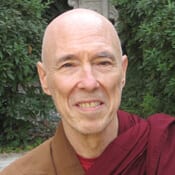
Venerable Bhikkhu Bodhi is an American Buddhist monk and translator of Pali Buddhist texts. He is also the founding chair of Buddhist Global Relief, an organization dedicated to helping communities worldwide afflicted with chronic hunger and malnutrition. He was appointed editor of the Buddhist Publication Society (in Sri Lanka) in 1984 and its president in 1988. Ven. Bodhi has many important publications to his credit, either as author, translator, or editor, including the Buddha — A Translation of the Majjhima Nikaya (co-translated with Ven. Bhikkhu Nanamoli (1995), The Connected Discourses of the Buddha — a New Translation of the Samyutta Nikaya (2000), and In the Buddha’s Words (2005).
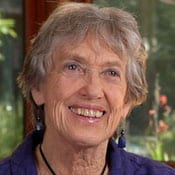
Gaian Teacher Joanna Macy PhD, is a scholar of Buddhism, general systems theory, and deep ecology. A respected voice in the movements for peace, justice, and ecology, she interweaves her scholarship with five decades of activism. As the root teacher of the Work That Reconnects, she has created a ground-breaking theoretical framework for personal and social change, as well as a powerful workshop methodology for its application. She is author of many books, most recently Active Hope: How to Face the Mess We’re in without Going Crazy and the revised edition of Coming Back to Life. More at JoannaMacy.net.
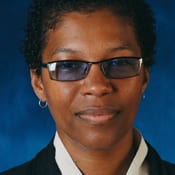
Rev angel Kyodo williams is a teacher, author, activist, master trainer and leader. She is the author of Being Black: Zen and the Art of Living With Fearlessness and Grace. Williams is the Spiritual Director of the meditation-based newDharma Community and founder of the Center for Transformative Change in Berkeley, California[3] and is also credited with developing fearlessMeditation, fearlessYoga and Warrior Spirit Training. More at the Center for Transformative Change.
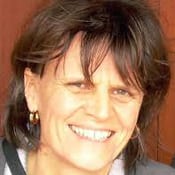
Our host Dharma teacher for the series, Thanissara Mary Weinberg, was trained in the Forest School of Ajahn Chah, is a Dharma teacher and activist. She is co-founder of Dharmagiri on the border of Lesotho and South Africa, and Chattanooga Insight. She has taught meditation retreats for 25 years, and has an MA in Mindfulness Psychotherapy Practice. Thanissara is author of The Heart of the Bitter Almond Hedge Sutra, co-author, with Kittisaro, of Listening to the Heart: A Contemplative Journey to Engaged Buddhism, and Time To Stand Up, a book on Buddhism and Climate Action.
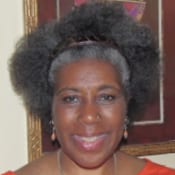
DaRa Williams is a trainer, meditation teacher and wellness coach. She has been a clinician and administrator in the field of Mental Health for over 25 years. DaRa currently maintains a private practice in Manhattan. She is a certified Complex Trauma Focusing Oriented Therapist and a practitioner of Natural Force Healing, a vibrational energetic healing system. DaRa has been a meditator for the past 20 years and is a practitioner of both Vipassana and Ascension meditation. She is a member of the Board of Directors for the Insight Meditation Society in Barre, Massachusetts, graduate of the Community Dharma Leaders Program, and in the current IMS/Spirit Rock Teacher Training program with Jack Kornfield.
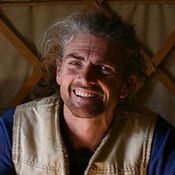
Guhyapati is the founder of the ecodharma centre in the Catalan Pyrenees, which combines a retreat and education centre with post-capitalist community living. Thirty years of Dharma practice and social activism, together with an astute sense of group dynamics, inform his facilitation of participatory and holistic learning. He was ordained in the Triratna Buddhist Order in 1994. In recent years he has given much of his time to the development of trainings focused on engaged Buddhism and sustainable activism. His love of the mountains finds expression in guiding wilderness immersion retreats and teaching radical ecology.
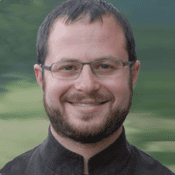
Adam Lobel is a senior teacher (acharya) in the Shambhala Buddhist tradition and a scholar of religion and philosophy. He brings a genuineness and direct experience to the spiritual path and everyday life. In addition to leading programs worldwide, he has taught meditation in the juvenile prison system and is involved in numerous ecological and social transformation initiatives. Adam holds a master’s degree from Harvard Divinity School, where he helped establish a track for Buddhist ministers. He continues his doctoral research at Harvard University.
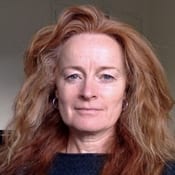
Catherine has been teaching Insight Meditation at Gaia House and internationally since 1997. Her teaching emphasises embodiment and working with whatever hinders us from living our deepest knowing in the world through body speech and mind. You can read a a beautiful article by Catherine on the First Foundation of Mindfulness shared here on One Earth Sangha.
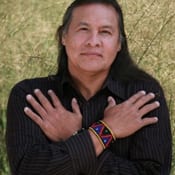
Tiokasin Ghosthorse is from the Cheyenne River Lakota (Sioux) Nation of South Dakota and the bands of Itazipco/Mnicoujou and Oglala. He is the host of First Voices Indigenous Radio on WBAI NY – Pacifica Radio. Tiokasin has been described as “a spiritual agitator, natural rights organizer, Indigenous thinking process educator and a community activator.” One reviewer called him “a cultural resonator in the key of life.”
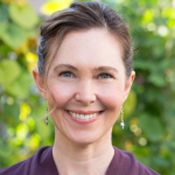
Lama Willa has studied and practiced in the Tibetan Buddhist tradition for the last twenty years in the non-sectarian Kagyu, Nyingma and Shangpa lineages of Tibetan Buddhism. Her teaching specialties include natural meditation (mahamudra), heart-cultivation (lojong), deity practice, and practices for deep retreat. She is interested in the practical integration of meditation into daily life, and the power of nature to inspire authentic presence. She is an author, a visiting lecturer in Buddhist Ministry at Harvard Divinity School and the founder/spiritual director of Natural Dharma Fellowship and Wonderwell Mountain Refuge.

Dawn Haney brings passions for social justice, good non-profit management, and dharma to Buddhist Peace Fellowship as a Co-Director. For the past 10 years, she helps small organizations make a big impact through program development, popular education, and resource management. After years of reading Pema Chödrön and Thích Nhất Hạnh, Dawn settled into the Theravadan tradition on a meditation cushion at the Durango Dharma Center, desiring more resilience in her work to heal trauma and oppression. She has trained people about gender and racial justice since 2000, while earning her Master’s degree in Health Promotion from the University of Georgia.
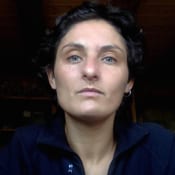
Alex facilitates courses geared towards social and personal transformation at the eco-dharma centre, where she lives and works as Project Coordinator. Her history of political activism has involved her in direct action and affinity group work focused on climate justice, ant-capitalism, queer politics and gender identity. A strong focus on the somatic dimension (informed by her work as a dance artist and yoga teacher) underpins both her approach to the dharma and work to promote social change. Her Buddhist practice has been influenced by teachers of various traditions and she’s currently undertaking the ordination training of the Triratna Buddhist Order.
Session Hosts
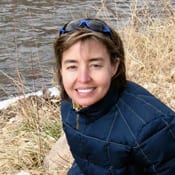
Kristin is co-founder and director of One Earth Sangha. In her commitment to collective awakening, Kristin is currently being trained in Spirit Rock‘s Community Dharma Leaders program, serves on the board of the Insight Meditation Community of Washington, DC and co-founded White Awake whose mission is to develop awareness of race dynamics among white people engaged in spiritual communities and progressive causes. She has worked as an independent consultant and staff member at several environmental organizations in Washington, DC.
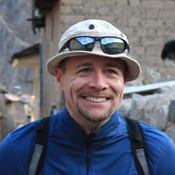
Lou is co-founder of One Earth Sangha, an environmental lawyer, a teacher and the leader of the climate change program at World Wildlife Fund which he joined in 2008 after a year on the staff of the Obama for America campaign. He also serves on the board of directors of the US Climate Action Network. Lou came to the Dharma as a response to the challenges of working on climate issues and practices within the Insight Meditation Community in Washington.
[/expand]
[expand title=”Course Schedule” tag=”h3″ id=”CourseSchedule”]
PART 1: Resourcing Ourselves for the Journey
Introduction to the series: Kristin Barker interviews best-selling author and lead teacher at the Insight Meditation Community of Washington Tara Brach.
Establishing Sacred Refuge – Beginning with Buddha-Nature
Ground our practice in sacred refuge and begin with ourselves: refuge in our own, individual Buddha-nature.
Session Leaders: Ven. Bhikkhu Bodhi, Kristin Barker, Lou Leonard
Recorded Session Two: Refuge in Sangha
Reflect on what it means, in the face of climate change, to take refuge in sangha and how we can actively cultivate it.
Session Leaders: Joanna Macy and Adam Lobel
PART 2: Hindrances and Potential on the EcoSattva Path
Session Three: A Loving, Steady, Confrontation with Hindrances at the Individual Level
Learn to recognize and skillfully confront, in ourselves and others, the hindrances to effective engagement.
Session Leaders: Guhyapati and Alex Swain
Session Four: A Loving Steady, Confrontation with Hindrances at the Collective Level
Examine the shared roots of and shared remedies for systems of exploitation.
Session Leaders: DaRa Williams, Thanissara and Dawn Haney
Session Five: Emergence Potential – “The Sickness is Medicine.”
Open to the potential of climate change to heal our delusions, setting us in Right Relationship with all other beings.
Session Leader: rev angel Kyodo Williams and Tiokasin Ghosthorse
- Bonus: Integrating the series: Kristin Barker interviews Dharma teacher, author and activist, Thanissara.
PART 3: Walking Practice
OPTIONAL
Session Six: Forms of Outer Response – Buddhist/Mindful Engagement on the Climate Crisis
Explore explicit forms of engagement. Get updates from diverse movements, share our work and discover partners.
This session features a panel discussion of engaged practitioners and activists. Check out all of the engagement panel bio’s here.
OPTIONAL
Session Seven: Integrating Practice and the Dharma
Actively connect our work on ecological healing with practice, seeing every moment as potential for awakening.
Session Leaders: Catherine McGee and Lou Leonard
Session eight: Continuing the Journey Together
Notice what has emerged, commit to answering the call, set intentions for going forth and dedicate the merits.
Session Leader: Joanna Macy
Post-Course
Harvest Session: Harvest and Q&A
Sangha reflections and opportunities for continuing together.
Session Leaders: Kristin Barker and Lou Leonard
[/expand]
[expand title=”Join an EcoSattva Sangha” tag=”h3″ id=”Sangha”]
As part of the this fall’s EcoSattva Training, we are encouraging and supporting the formation of local or virtual small groups. Engaging with climate change is a chance to collaborate – and we will need to! To engage together is to know that we are not only part of the web of life, but also a part of the web of support and action. These groups provide an opportunity for people to engage in the training and receive support along the way all while deepening relationships with others. You may choose to form your own group with people from your local sangha or get into an online groups with assistance from us.
Form a group of three or more and save on registration! When you register, you’ll have the opportunity to provide the name of your group (e.g., “Seattle Insight – EcoSangha”) or your group leader’s name (who will also be registered). If you want to join an online EcoSattva Sangha, just enter “Online” as the group name.
Once you have a group and everyone is registered, decide on a regular time to meet, for instance, a weekday evening. At your first meeting, you might spend some time in introductions. As you gather for each session, you might open with a short sitting then listen together to the session audio. Each session includes a “breakout groups” segment which focuses on inquiries that help you explore the topic with yourself and others. At the end of the recording, you can sit again and confirm your intention to do the homework and meet again for the next session. These of course are just suggestions. Do what works for you and your group!
[/expand]
Registration
Email to register.
Questions?
Find answers to Frequently Asked Questions here.
Gratitude
This training series benefits from the sage advice and loving support from so many in our community. In particular, we are grateful to our advisory panel, Mark Colemen, Catherine McGee, Chas DiCapua, James Baraz, Susie Harrington, Tara Brach and Thanissara.
